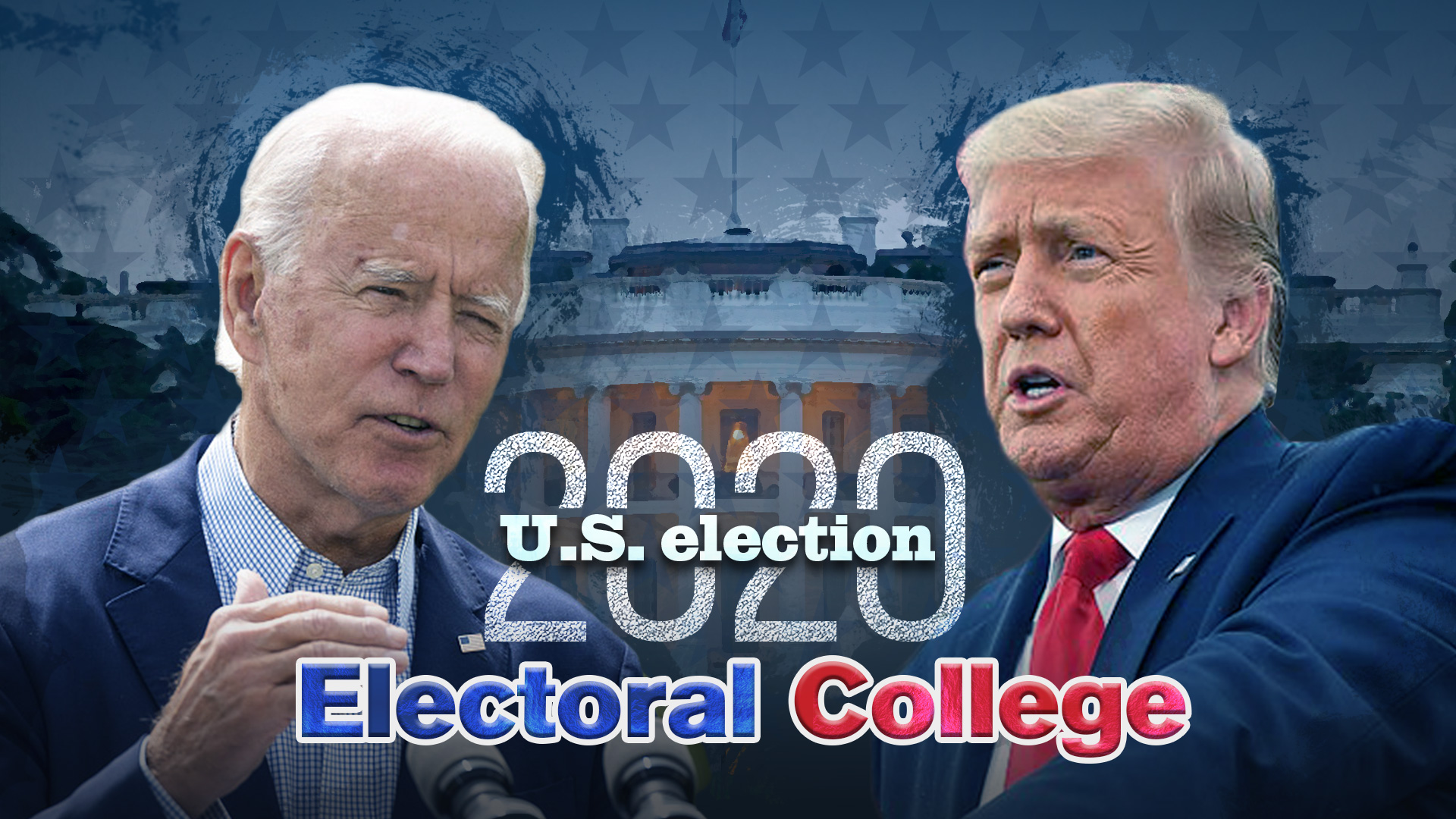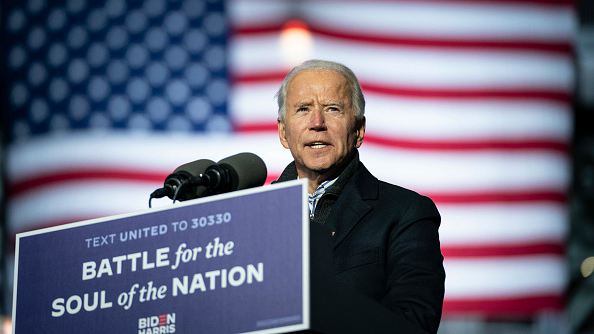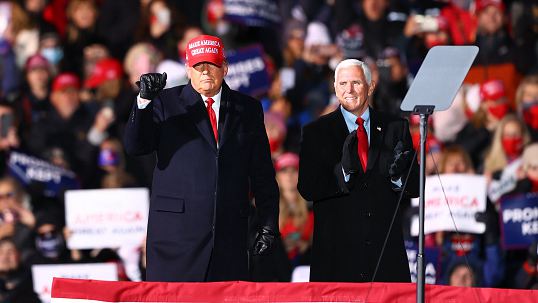The final day of voting in the United States has arrived and attention has switched to election night: How could the evening play out for Donald Trump and Joe Biden?
Several factors have combined to make election night in the United States particularly uncertain in 2020: A massive increase in early and mail voting has changed how and when ballots will be counted; there is expected to be record turnout; the specter of 2016 and Trump's surprise win has hovered over a polling picture that in previous years would have told a clear story; and the expectation that neither candidate will easily concede has sowed seeds of doubt.
02:07

For all of these reasons, it's hard to say when the results of the presidential or congressional races will be known. It'll vary from state to state, with each having different rules, and with lawyers from both parties poised to jump in once voting ends, the uncertainty could last for days.
Here are four possible scenarios to watch out for in the hours after the polls close.
1. Biden flips quick-counting states
Biden has several potential, if narrow, routes to an on-the-night victory.
A series of competitive states won by Trump in 2016 – Florida, North Carolina, Arizona, Ohio and Georgia – are expected to report on Tuesday evening or early Wednesday morning and polls indicate the races in all are neck and neck.

Joe Biden speaks during a drive-in campaign rally at Heinz Field in Pittsburgh, Pennsylvania, November 2, 2020. /Getty
Joe Biden speaks during a drive-in campaign rally at Heinz Field in Pittsburgh, Pennsylvania, November 2, 2020. /Getty
If Biden were to win Florida's 29 electoral votes, he would be on 255 – assuming his solid polling leads in other states pan out – and need just 15 to hit the magic number of 270 and win the Electoral College.
Those 15 votes could come in North Carolina (15), Georgia (16) or Ohio (18), or a combination of Arizona (11) plus one smaller state such as Iowa (6).
The Democrat could lose Florida and still win the election, but it'd be harder for him to do it on the night – it would require him to flip three or four of the other quick-counting battlegrounds, though winning just one or two would put him in the box seat.
2. Trump holds the quick-counting states
The arithmetic for Trump is much trickier, and there is no clear route to an on-the-night victory.
Florida, now his home state, is a must-win for the president and the polls suggest it could go either way. North Carolina, Arizona and Georgia were won by the Republican by at least 3.5 points in 2016, and they are all within the margin of error this year. He won Ohio by eight points in 2016, but it's a toss-up this year.

Donald Trump and Mike Pence greet supporters at a rally in Traverse City, Michigan, November 2, 2020. /Getty
Donald Trump and Mike Pence greet supporters at a rally in Traverse City, Michigan, November 2, 2020. /Getty
Trump could retain them all but he still wouldn't hit the 270 votes needed for Electoral College victory. This would set up a grand finale over the following days in the Midwestern states that narrowly put him in the White House.
3. It all hangs on Pennsylvania
The Trump-Biden contest could follow the same path as 2016, again putting three Midwestern states – Pennsylvania, Michigan and Wisconsin – at the heart of the election.
All three allow only limited pre-processing of mail ballots, meaning – if the results are close – it could take days for a winner to be declared, leaving the country in limbo.
02:01

The polls strongly favor Biden in Michigan and Wisconsin, so Pennsylvania, the state both candidates have dedicated most of their time to, and its 20 electoral votes would likely be the decider.
The added confusion in Pennsylvania is that Trump is likely to be ahead on-the-night there because votes cast on the day will be counted first, and early votes expected to favor the Democrats will be counted over the following days.
4. Trump declares victory
Trump and his campaign have repeatedly said a winner should be announced on election night despite the fact that millions of votes are unlikely to have been counted and there is no realistic chance of him having won 270 votes by that time.
Several states say they won't be able to give final tallies for days and even states expected to count quickly are unlikely to call races on election night if the vote counts are very tight.
Senate battles that could make or break the next president
A tangle of rules: Why the U.S. election confuses so many
A declaration of victory by a candidate has no legal basis, but Trump is reportedly prepared to call a win if it looks like he's ahead on election night.
"I think it's terrible that we can't know the results of an election the night of the election," the president said on Sunday. "We're going to go in the night of, as soon as that election's over, we're going in with our lawyers."

